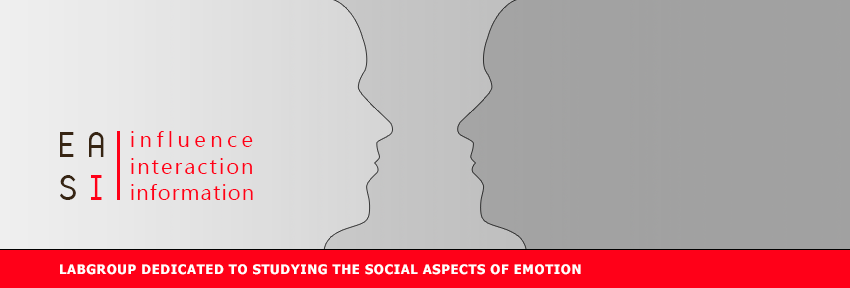Hierarchical differences are a universal feature of social groups. Within this broad context, we are interested in how power modulates emotional experience, emotion perception, and the social effects of emotional expressions. For instance, we study how power influences the ways in which people lift themselves up emotionally, specifically whether they draw inspiration from themselves or from others. We also investigate how power affects the recognition of emotional expressions, and whether such recognition depends on the legitimacy of one’s power position. We further examine how power influences empathy and compassion with people in distress, and how power shapes behavioral responses to other people’s emotional expressions. Finally, we study the intersection between emotion and power abuse. Among other things, we investigate which emotions people associate with norm violators versus norm abiders (e.g., anger vs. sadness) and how such associations shape inferences about a person’s power level.
Sample publications:
Van Kleef, G. A., Oveis, C., Van der Löwe, I., LuoKogan, A., Goetz, J., & Keltner, D. (2008). Power, distress, and compassion: Turning a blind eye to the suffering of others. Psychological Science, 19, 1315-1322.
Stamkou, E., Van Kleef, G. A., Fischer, A. H., & Kret, M. E. (2016). Are the powerful really blind to the feelings of others? How hierarchical concerns shape attention to emotions. Personality and Social Psychology Bulletin, 42, 755-768.
Van Kleef, G. A., Oveis, C., Homan, A. C., Van der Löwe, I., & Keltner, D. (2015). Power gets you high: The powerful are more inspired by themselves than by others. Social Psychological and Personality Science, 6, 472-480.
Van Kleef, G. A., & Lange, J. (2020). How hierarchy shapes our emotional lives: Effects of power and status on emotional experience, expression, and responsiveness. Current Opinion in Psychology, 33, 148-153.
Kim, P. H., Mislin, A., Tuncel, E., Fehr, R., Cheshin, A., & Van Kleef, G. A. (2017). Power as an emotional liability: Implications for perceived authenticity and trust after a transgression. Journal of Experimental Psychology: General, 146, 1379-1401.
Van Kleef, G. A., Homan, A. C., Finkenauer, C., Gündemir, S., & Stamkou, E. (2011). Breaking the rules to rise to power: How norm violators gain power in the eyes of others. Social Psychological and Personality Science, 2, 500-507.

